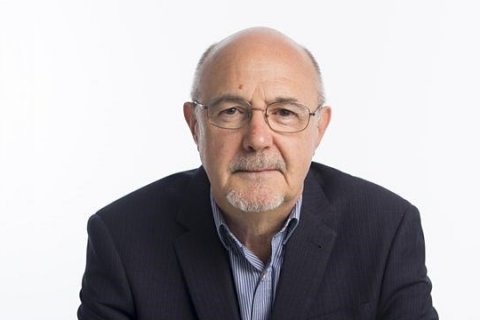Free Media and Democracy: interdependent or incompatible?
 Anmeldung möglich
Anmeldung möglich
In all but the most repressive of dictatorships, ordinary people now have near universal and unrestricted access to knowledge. When we were young we turned to newspapers and TV to know what was happening in the wider world, but now the worldwide web is
open to us all. Journalism, once an exclusive profession, is now democratised: previously once a career for the few, it has become a pastime for the many. Most adults today say they get their news online: they go and look for it in places they choose, or it arrives on their screens, sometimes unbidden, sometimes produced by algorithm, and sometimes from sources unknown.
Anyone can create news online; anyone can publish it to a potentially limitless audience; anyone can edit the news, comment on it, shape it, change it, and pass it on. Fearless citizen journalists in Palestine or Myanmar or Russia are now able to inform the world at first-hand. But malign actors – whether powerful governments or teenagers out for kicks – can create stories that run around the globe in an instant to mislead us, to infuriate us, to destabilise us and leave us increasingly unsure of what to believe. A free media has empowered us all. A free media imperils us all. This lecture will look at truth, lies, rumour and propaganda and the threat new media pose to the health of democracy.
-----------------------------------------------------------------------------------------------
Richard Ayre spent almost thirty years as a journalist and another two decades as a media regulator. A reporter for the BBC in Northern Ireland from 1973, he covered what came close to a civil war in that part of the UK. He went on to run the BBC’s network of correspondents and foreign bureaux, becoming deputy chief executive of BBC News with editorial responsibility for all its journalism in Britain and around the world. He spent three years in charge of the BBC’s ethics and editorial standards across all genres of programme making.
In the aftermath of Britain’s “mad cow disease” scandal Richard joined the board of Britain’s Food Standards Agency, with special responsibility for ensuring openness and transparency in food safety. He became Freedom of Information Adjudicator for The Law Society, before returning to broadcasting as chair of the editorial standards committee of OFCOM, the UK’s media regulator. In 2010 he went back to the BBC as a member of the governing body, again chairing its editorial standards committee. Until April 2025 he was chair of IMPRESS, Britain’s independent press regulator.
Richard is a former chair of Article 19, the international freedom of expression organisation. He is currently vice-chair of the Egypt Exploration Society, the world’s oldest charity advancing understanding and appreciation of ancient Egyptian culture.
Dies ist eine Veranstaltung in Kooperation mit der Deutsch-Britischen Gesellschaft Ruhr e. V. Informationen über die Deutsch-Britische Gesellschaft finden Sie auf www.dbg-ruhr.de.
| Kursnr. | 251.4G009E |
| Beginn | Mi., 04.06.2025, 18:30 - 20:00 Uhr |
| Dauer | 1 Termin |
| Kursort | VHS, Raum E.11 (Kleiner Saal) |
| Entgelt | 0,00 € |
| Kursleitung |
|
| Fragen zu Anmeldung, Ermäßigung, Auskünfte zu freien Kursplätzen |
Selma Rochholz +49 201 88 43223 selma.rochholz@vhs.essen.de |
| Inhaltliche Beratung | Sophia Schmidt +49 201 88 43220 sophia.schmidt@vhs.essen.de |

VHS, Raum E.11 (Kleiner Saal)
Burgplatz 145127 Essen
